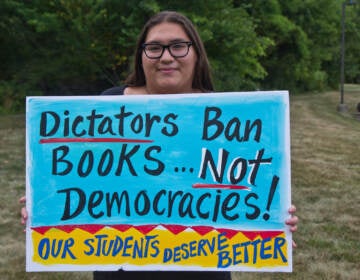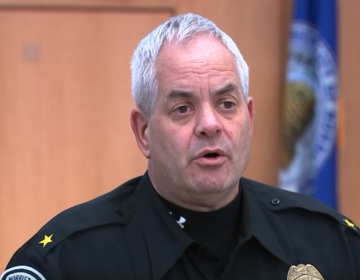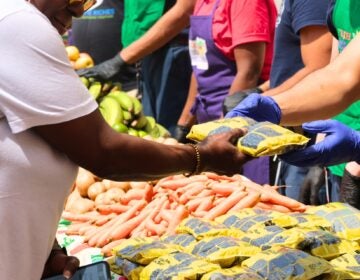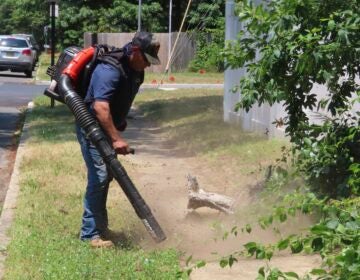Pennsylvania Horticultural Society celebrates its first season growing and distributing produce to food insecure neighbors
Leaders of PHS believe healthy food can be healing — for refugees and others.
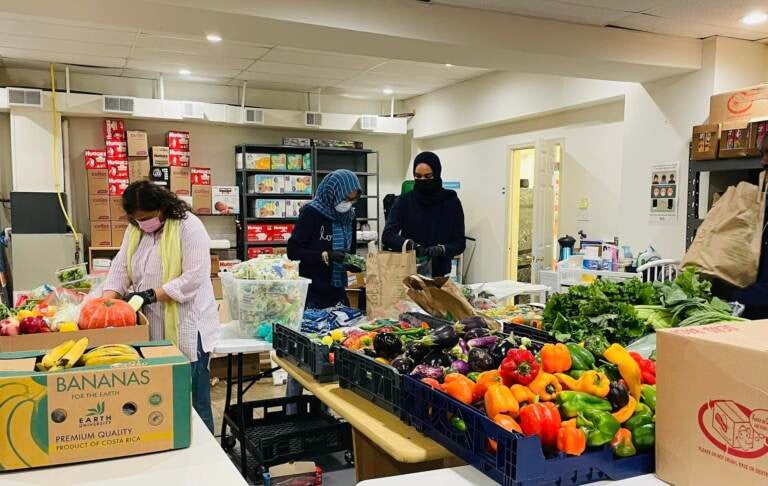
ICNA Relief volunteers organize fresh produce from the Green Resource Center. ICNA Relief serves about 100 families a week in Norristown. (Courtesy of ICNA Relief)
Got a question about life in Philly’s suburbs? Our suburban reporters want to hear from you! Ask us a question or send an idea for a story you think we should cover.
In just a few months, the Pennsylvania Horticultural Society has grown more than 6,000 pounds of produce — kale, squash, garlic, mustard greens, asparagus, potatoes, beets, tomatillos, and various herbs — at its Green Resource Center in Montgomery County. They’ve distributed most of it to area residents experiencing food insecurity.
ICNA Relief, a hunger relief organization that specializes in refugee and disaster relief services, works with PHS to distribute the food to people in Norristown and Philadelphia.
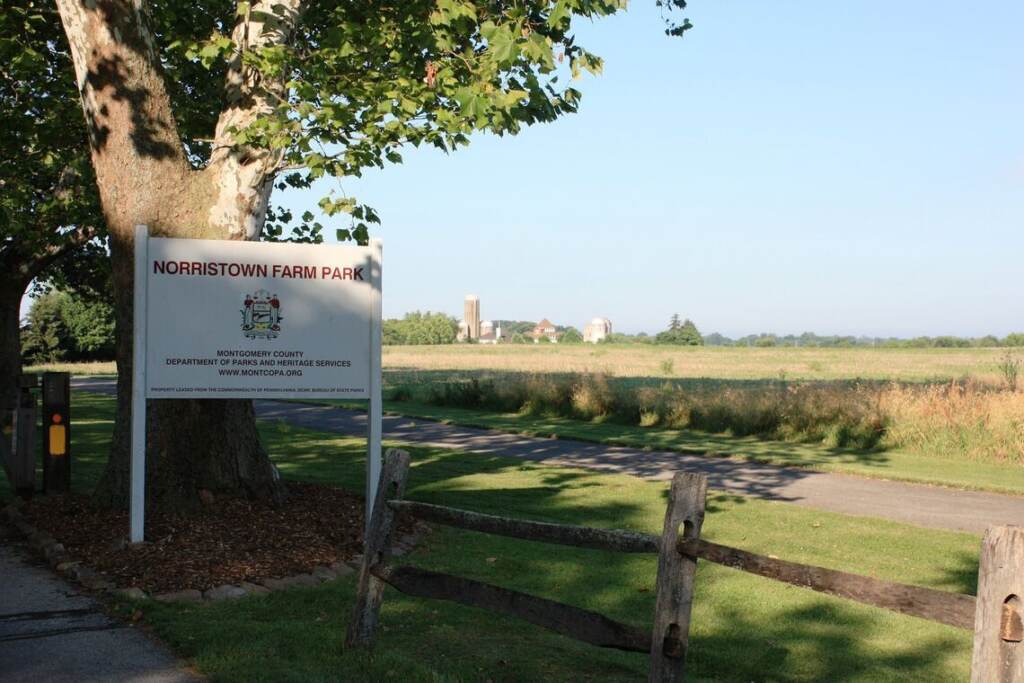
“They’re really grateful because typical food pantries will give out basics for cooking,” said Dana Mohamed, ICNA area manager for Pennsylvania. “We do that as well, once a month with our monthly food distribution of things like rice and pasta, canned vegetables. But to have this element of fresh, organic produce is just a game changer.”
Leaders of PHS believe healthy food can be healing — for refugees and others. So they’re also working with Creative Health Services, a mental and behavioral health clinic in Pottstown, to provide produce for its Food as Medicine program.
The pilot program is based on the idea that mental and physical illness can be treated with food as well as traditional medicine, said Justin Trezza, the program director for PHS’s Community Gardens Program. Creative Health Services prescribes produce boxes to 20 participants. And PHS conducts cooking workshops and provides a vegetable garden on their farm in Norristown for horticulture therapy.
“We’re just trying to get everyone to eat healthier,” Trezza said, “because again, this idea of, whatever we feed our stomachs also is feeding our brain.”
PHS hopes to expand the program during the farm’s next growing season.
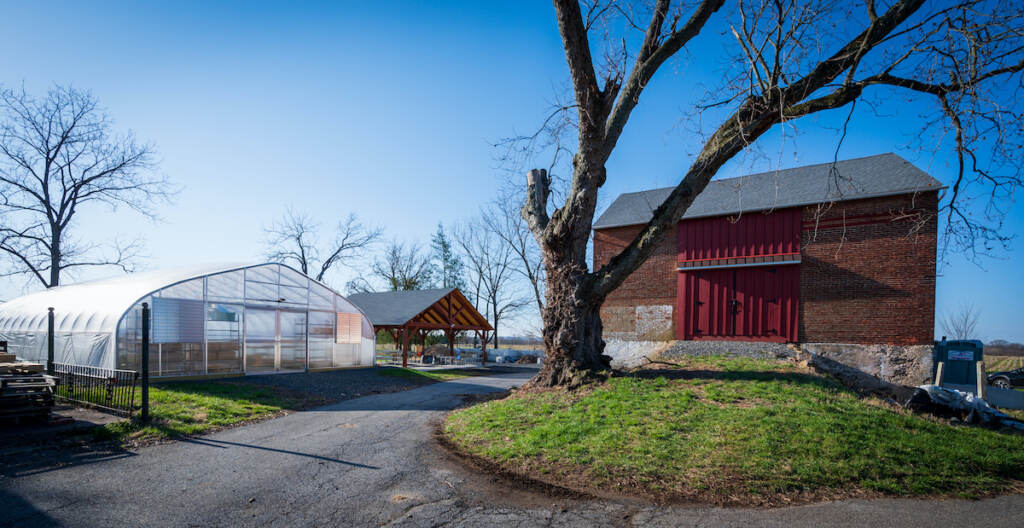
But for now, PHS is happy to celebrate the end of its first growing season. PHS will open its Green Resource Center at Norristown Farm Park to the public at a ribbon-cutting ceremony at 10 a.m. on Monday.
Along with the teaching farm, the center has a greenhouse, pollinator gardens, a pavilion for public programming, and 45 community garden beds.
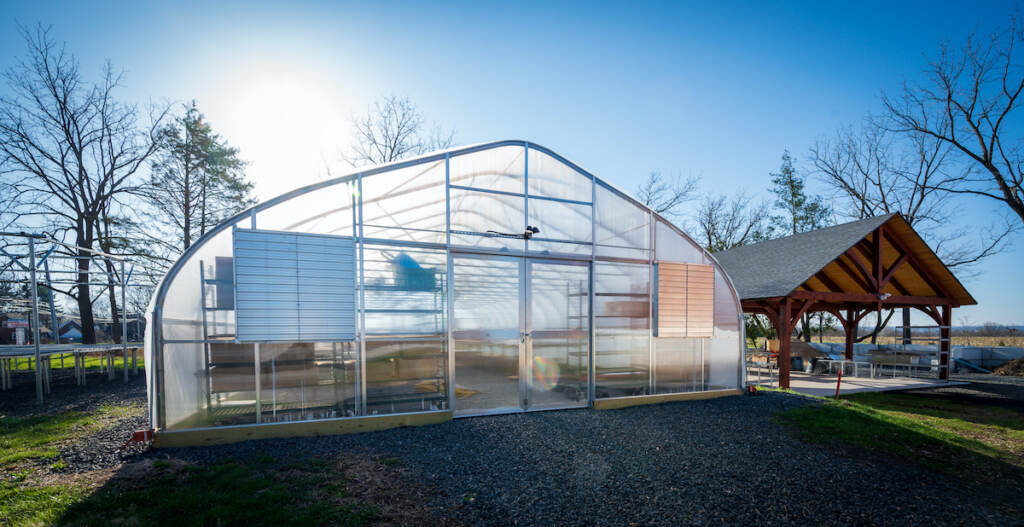
PHS got a portion of the $1 million Montgomery County received in CARES Act money to launch the Green Resource Center to help combat food insecurity and increase workforce development. Now the center has $450,000 from the Recovery Act, distributed by Montgomery County’s Recovery Office, to use over the next two years, Trezza said.
About 7% of Montgomery County residents (about 58,000 people) are experiencing food insecurity, according to Feeding America.
“With inflation and continued rising costs for food, there is a need for broad collective action to support the health and wellbeing of communities,” the PHS said in a written statement.
Trezza said the PHS has used the past year to “get to know the land.”
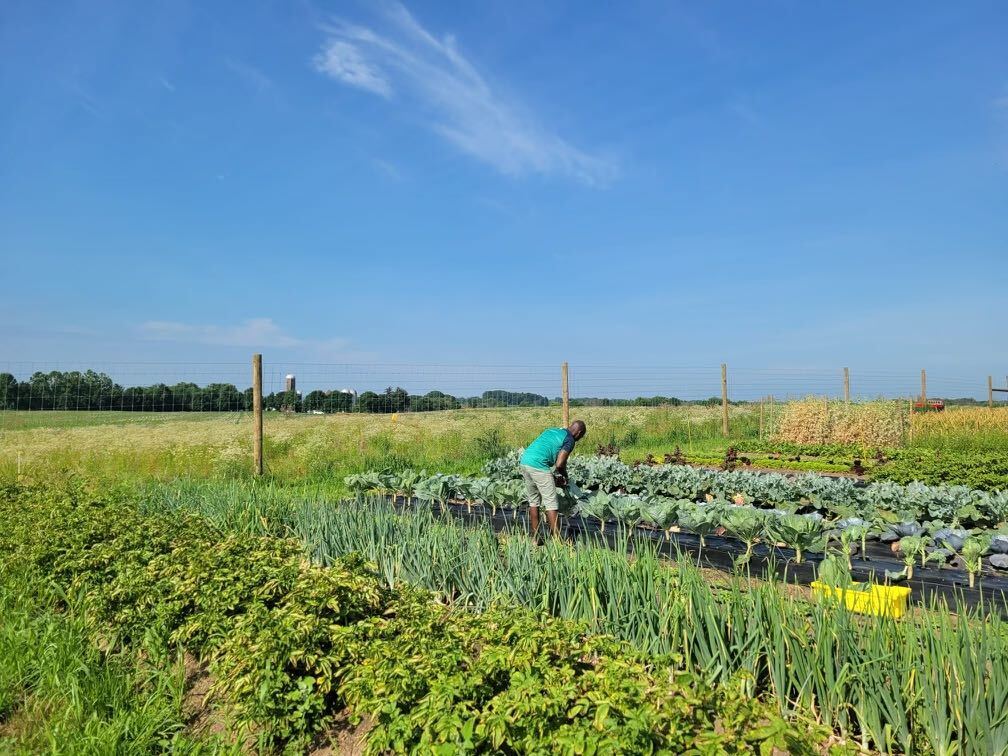
“A lot of the land was being traditionally grown on before — soy and corn,” Trezza said. “So we had to do a lot of work to replenish the nutrients … add a lot of organic matter to the soil.”
The PHS also spent much of the first year building community partnerships with organizations like ICNA Relief, the YWCA’s Dignity Kitchen (a worker development program in Pottstown), Norristown Sprouts Community Garden, and the Children’s Hospital of Philadelphia Karabots Primary Care Center.
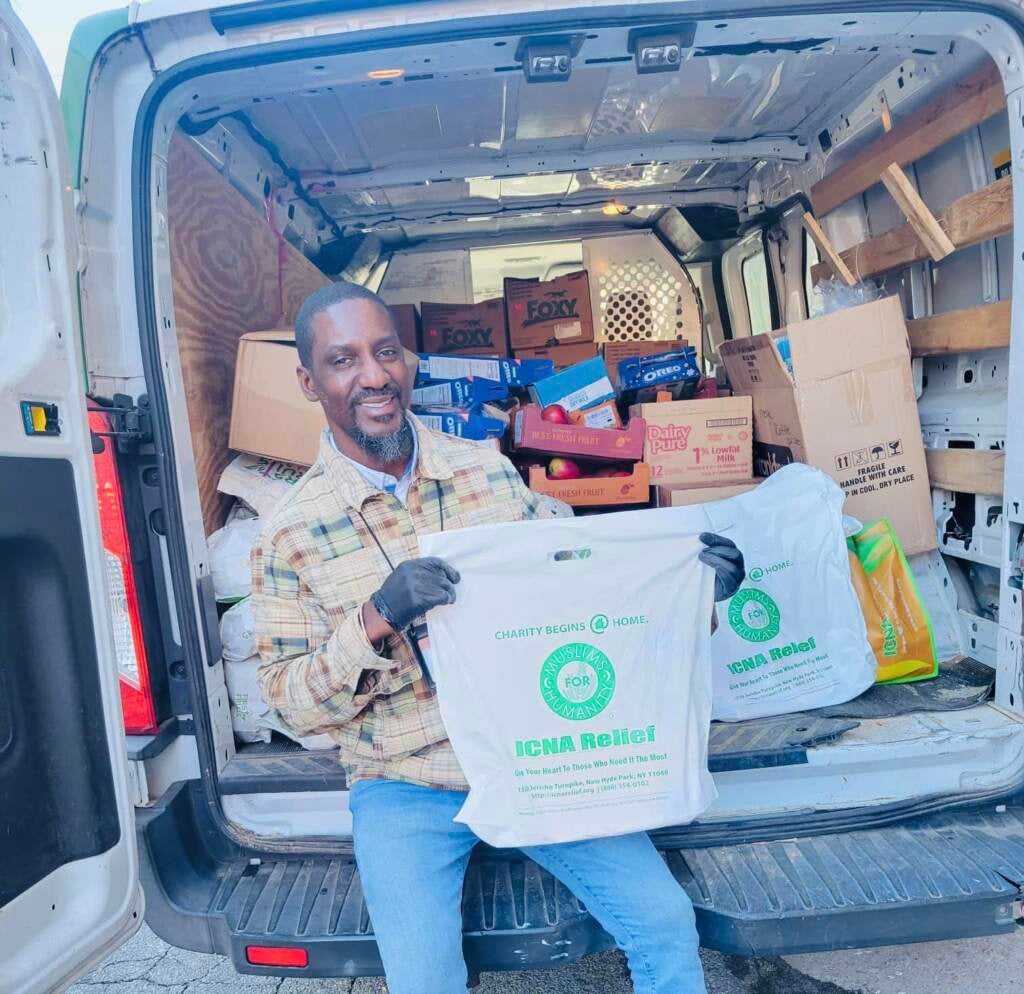
Trezza said the PHS wants to continue to nurture those partnerships and develop new ones. It also wants to bring more community members to the farm to learn about farming.
And in the next few years, PHS leaders hope to be able to offer even more produce — including fresh apples, pomegranates, pawpaws, plums, figs, raspberries, blueberries, and kiwis.
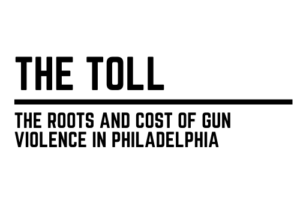 This article is part of The Toll: The Roots and Costs of Gun Violence in Philadelphia, a solutions-focused series from the collaborative reporting project Broke in Philly. Find other stories here and follow on Twitter at @BrokeInPhilly.
This article is part of The Toll: The Roots and Costs of Gun Violence in Philadelphia, a solutions-focused series from the collaborative reporting project Broke in Philly. Find other stories here and follow on Twitter at @BrokeInPhilly.
WHYY is your source for fact-based, in-depth journalism and information. As a nonprofit organization, we rely on financial support from readers like you. Please give today.


